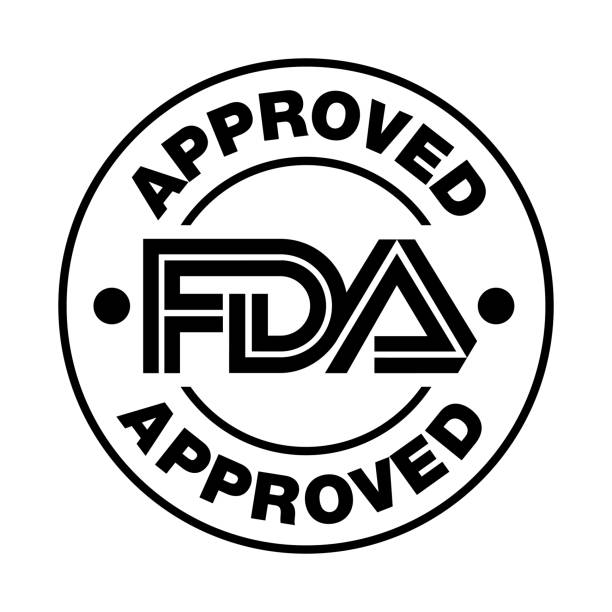June 30, 1906: The Pure Food and Drug Act
June 30, 1906: President Theodore Roosevelt signs the Pure Food and Drug Act into law. This was one of the most important pieces of legislation in American history, and it may have saved your life and mine.
It was necessary because, with the growth of American cities in the 19th Century, the time food took to get from farm to table got longer, and food spoiled and became poisonous before many people could get to it. Methods of preventing this including chemicals that were every bit as poisonous as the natural process would have been, including alcohol, opium and cocaine.
(Coca-Cola was invented in 1886, and, yes, it did contain a small amount of cocaine at the time, about 9 milligrams per glass. A typical "line" of cocaine is between 50 and 75 milligrams. In 1903, they dropped the ingredient for something safer -- but hardly completely safe.)
On February 25, 1906, Upton Sinclair's novel The Jungle was published. A Socialist, Sinclair had hoped it would lead to workers rising up to object to the poor working conditions in places designed for the production in food, including the place where he did his research, the stockyards and meat-packing plants of Chicago.
But "The Law of Unintended Consequences" reared its head, and the book's readers were horrified not by the working conditions, but the actual preparation of the food products. Six months later, the Pure Food and Drug Act was passed by Congress and signed by Roosevelt.
Did Sinclair think, "Oh well, some good came out of my book"? No, he thought it offered protection to the food bosses he was trying to bring down. He was furious.
Anyway, the Pure Food and Drug Act created the Food and Drug Administration, the FDA. It banned foreign and interstate traffic in adulterated or mislabeled food and drug products. It resulted in federal inspection of food, especially meat. It required that active ingredients be placed on the label of the packaging of food and drugs.
It also set definitions for certain foods, and if a food did not meet that definition, the company selling it legally could not call it that.
For example, the Taylor Provisions Company of Trenton, New Jersey had created and sold a product it called "Taylor's Ham." But with the passage of the Pure Food and Drug Act, their product did not meet the new legal definition of "ham": "Pork from a leg cut that has been preserved by wet or dry curing, with or without smoking."
So they changed the name of the product to "pork roll," and they have sold it under that name ever since. Trenton is in Central Jersey, and in Central Jersey and South Jersey, most people call the product what the inventors and largest producers of it call it: "Pork roll." But most people in North Jersey still call it "Taylor ham."
*
June 30, 1906 was a Saturday. The NFL, the NBA and the NHL hadn't been founded yet. In fact, those sports had only barely approached professionalism. But there were games played in what we would now call Major League Baseball:
* The New York Highlanders were supposed to play the Boston Americans at the Huntington Avenue Grounds in Boston, but the game was rained out. It was moved to July 6, as part of a doubleheader. The Highlanders swept it, 4-0 with Jack Chesbro outpitching Bill Dinneen, and 8-0 with Doc Newton outpitching Cy Young. The Americans became the Boston Red Sox in 1908, and the Highlanders became the New York Yankees in 1913.
* The New York Giants lost to the Boston Beaneaters, 4-3 at the Polo Grounds. The Boston team of the National League went through several name changes, before settling on "Braves" in 1912 -- and even then, they tried "Bees" from 1936 to 1940, before going back to "Braves," and then moving to Milwaukee in 1953 and Atlanta in 1966. The Giants moved to San Francisco in 1958.
* The Brooklyn Superbas beat the Philadelphia Phillies, 5-4 at Baker Bowl in Philadelphia. They became the Dodgers in 1911, then the Robins for manager Wilbert Robinson from 1914 to 1931, and then the Dodgers again. They moved to Los Angeles in 1958.
* The Philadelphia Athletics beat the Washington Senators, 6-5 at Boundary Field in Washington. Both Boundary Field at the current version of the Giants' Polo Grounds burned down in 1911, and were replaced that year, by Griffith Stadium and the modern Polo Grounds, respectively.
* The Chicago White Sox swept a doubleheader from the Cleveland Naps at League Park in Cleveland. The Cleveland team was named for their manager and 2nd baseman, Napoleon "Nap" Lajoie. When he left after the 1914 season, they became the Cleveland Indians. The South Siders won the 1st game 6-4 in 12 innings, and the 2nd game 12-11.
* The Detroit Tigers swept a doubleheader from the St. Louis Browns at Bennett Park in Detroit, It was torn down in 1911, and the ballpark that would eventually be named Tiger Stadium was built on the site. They won the opener 2-1, and the nightcap 3-2.
* The Chicago Cubs beat the Cincinnati Reds, 2-1 at West Side Park in Chicago.
* The Pittsburgh Pirates beat the St. Louis Cardinals, 6-3 at Robison Field in St. Louis. That's "Robison," named for the brothers who then owned the Cardinals, not "Robinson."



Comments
Post a Comment